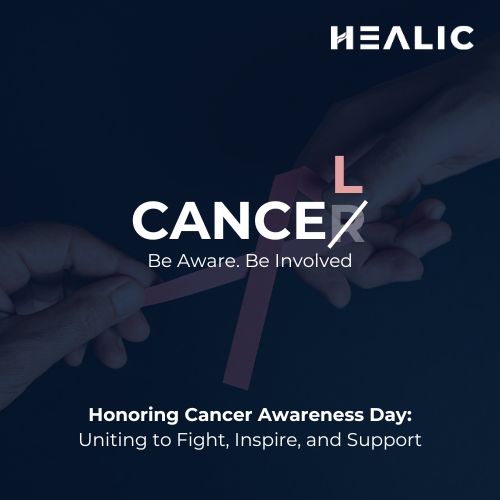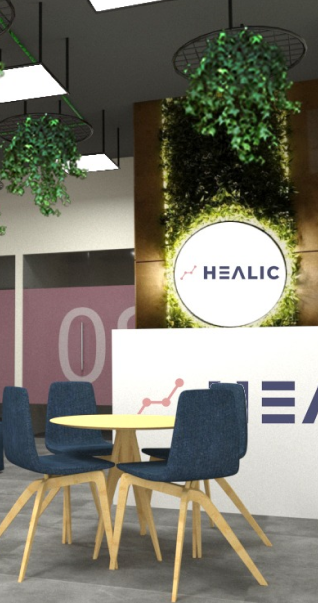Cancer doesn’t discriminate. It doesn’t care about your income, race, gender, or where you live. It can strike anyone, anywhere. Yet, when it comes to the care and treatment for this devastating disease, the inequalities become stark. The barriers are numerous, and they often determine the quality of treatment and care, even influencing whether someone lives or dies. As we observe National Cancer Awareness Day, it’s crucial to shine a light on these disparities and work towards closing the care gap for all.
The statistics paint a grim picture of the current scenario. A child in a low-income country is up to four times more likely to succumb to cancer than their counterpart in a high-income country. In the United States, the disparity is evident as well, with a black woman being 40% more likely to lose her life to breast cancer compared to a white woman. Furthermore, the challenges faced by disabled individuals in accessing healthcare are profound, with three times higher denial rates compared to those without disabilities. These figures are not just numbers; they represent real people, real lives affected by systemic inequalities.
The need for action is urgent. It’s time for us to come together, listen to each other, and take meaningful steps to bridge the gap in cancer care. No longer should one’s socio-economic status or geographic location dictate the chance of survival. Every individual, regardless of their background, deserves equitable access to quality healthcare.
Challenges in the Indian Context
In India, the battle against cancer is a pressing concern. Each year, approximately 7 lakh new cases are diagnosed, putting a significant strain on the healthcare system. Among Indian women, five prevalent types of cancer have been identified, namely Breast Cancer, Cervical Cancer, Colorectal Cancer, and more. While awareness about cancer has increased over the years, access to timely and effective treatment remains a major challenge, particularly for those from marginalized communities.
Empowering Communities and Enhancing Accessibility
The key to addressing these disparities lies in empowering communities and enhancing accessibility to comprehensive cancer care. This can be achieved through a multi-pronged approach that involves collaboration between various stakeholders, including government bodies, medical professionals, non-profit organizations, and the general public.
Raising Awareness: Education as a Shield
Raising awareness is the first step towards early detection and prevention. Educational campaigns targeted at both urban and rural populations can play a significant role in encouraging regular screenings and promoting a healthy lifestyle. Knowledge about risk factors, symptoms, and the importance of timely medical intervention can potentially save lives.
Investing in Infrastructure: Strengthening Healthcare Facilities
The development of robust infrastructure for cancer diagnosis and treatment is imperative. This includes the establishment of well-equipped cancer centers, the availability of advanced screening technologies, and the training of healthcare professionals in the latest treatment protocols. Investment in research and development for affordable and effective therapies should be a priority for governments and private sector entities alike.
Promoting Inclusivity: Ensuring Equal Access for All
To ensure inclusivity, efforts must be made to eliminate barriers that prevent marginalized communities from accessing healthcare. This involves implementing policies that prioritize the needs of underprivileged groups, providing financial aid for treatment, and offering transportation facilities for those living in remote areas. Additionally, creating a supportive environment for disabled individuals, both physically and emotionally, is essential to guarantee their right to healthcare.
Collaboration and Advocacy: Uniting for Change
None of these efforts can be successful in isolation. It requires a collaborative approach, with active participation from all sectors of society. Non-governmental organizations, healthcare professionals, and policymakers must collaborate to advocate for policies that promote equitable access to cancer care. By amplifying the voices of those affected by disparities and advocating for change at both local and global levels, we can bring about tangible transformations in cancer care.
Hope for the Future
While the challenges are immense, there is hope for the future. With concerted efforts and a shared commitment to equality in healthcare, we can create a world where anyone facing cancer receives the care they need and deserve. On this World Cancer Day, let us reaffirm our dedication to building a more just and compassionate healthcare system, one that leaves no one behind in the fight against cancer.
Conclusion
The battle against cancer is not just a medical one; it is a fight for equality and justice. It’s a call to action for societies worldwide to ensure that no individual is left behind due to socio-economic status, geographical location, or any other discriminatory factor. By working together, we can make a difference and pave the way for a future where quality cancer care is a fundamental right for all. Let us stand united in our efforts to bridge the care gap and bring hope and healing to those in need.






